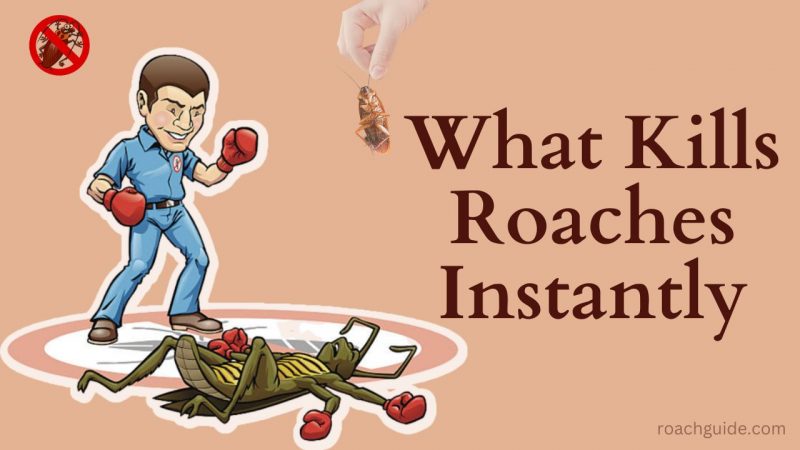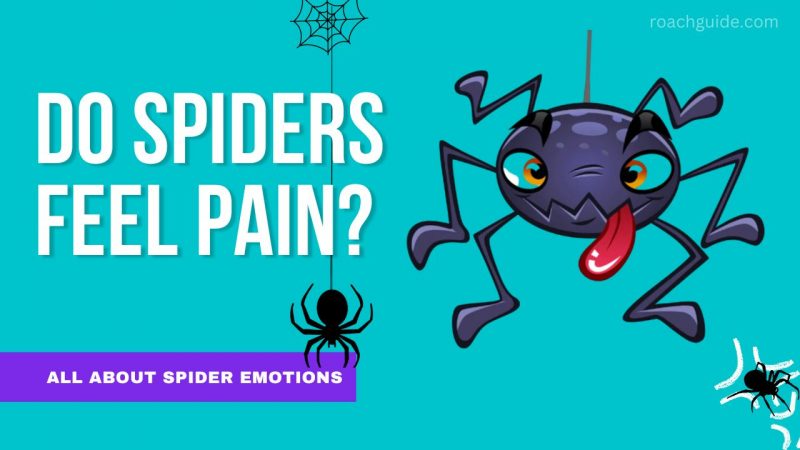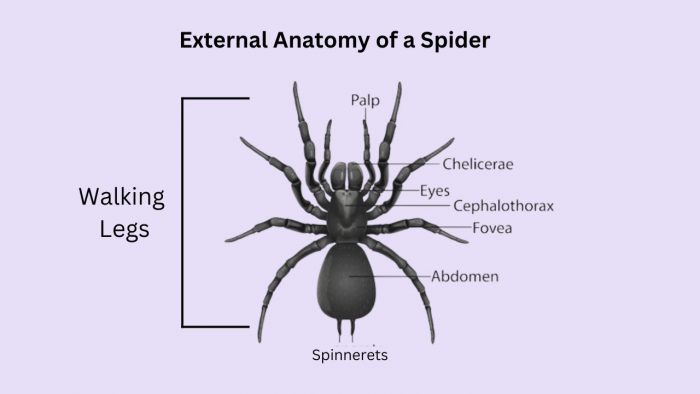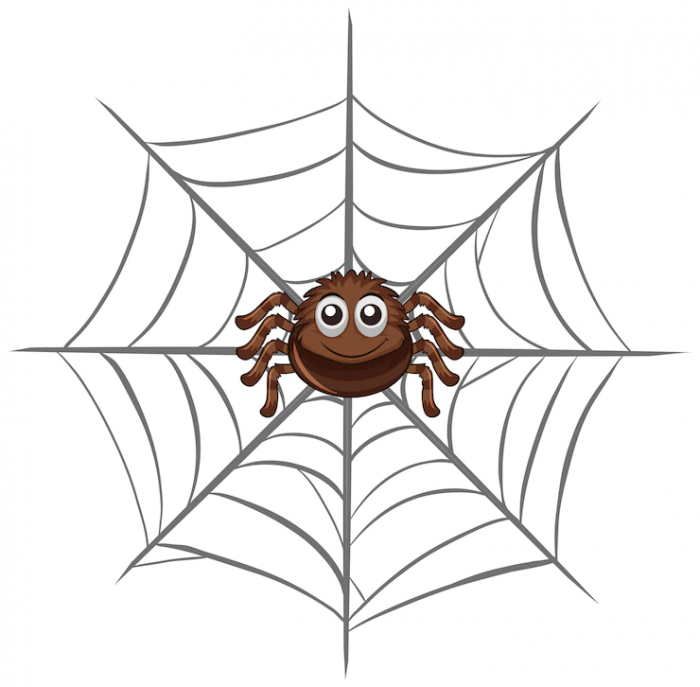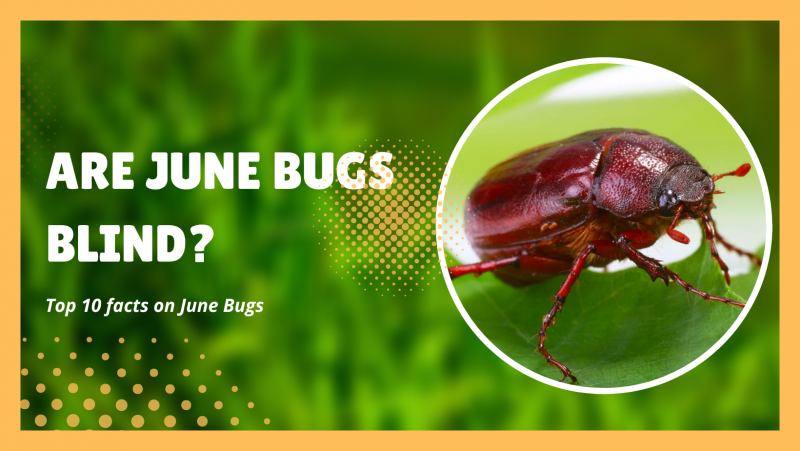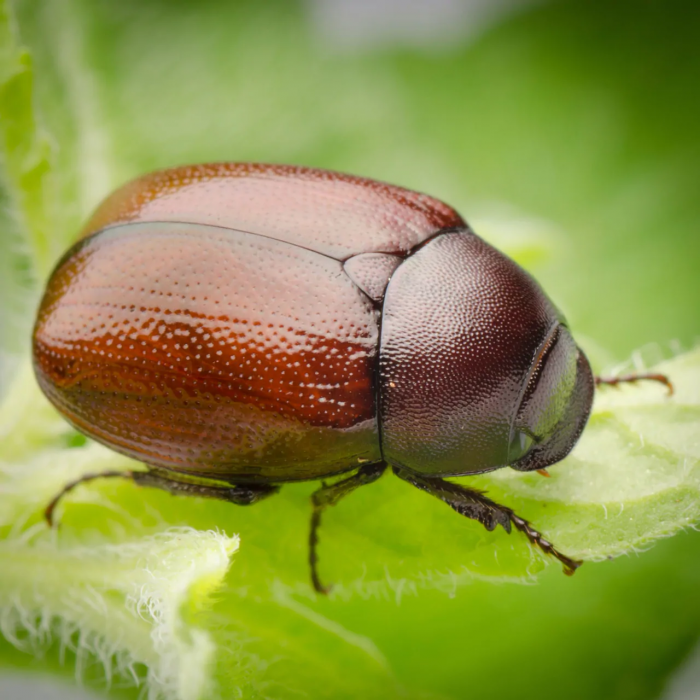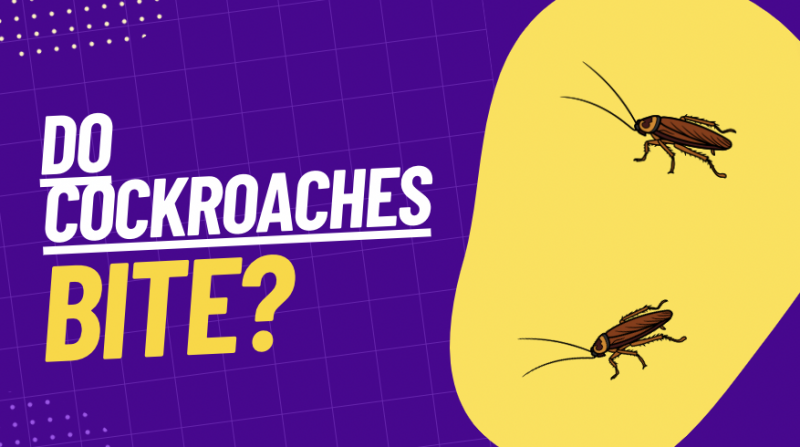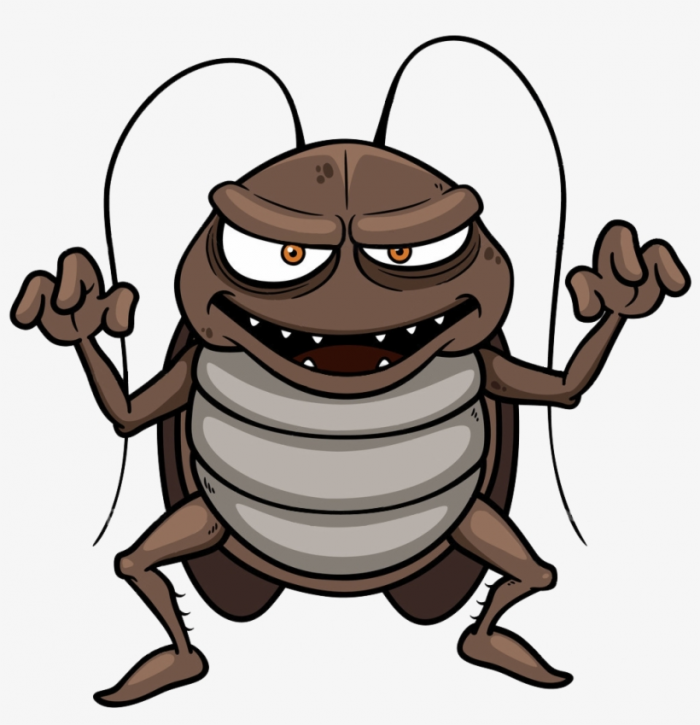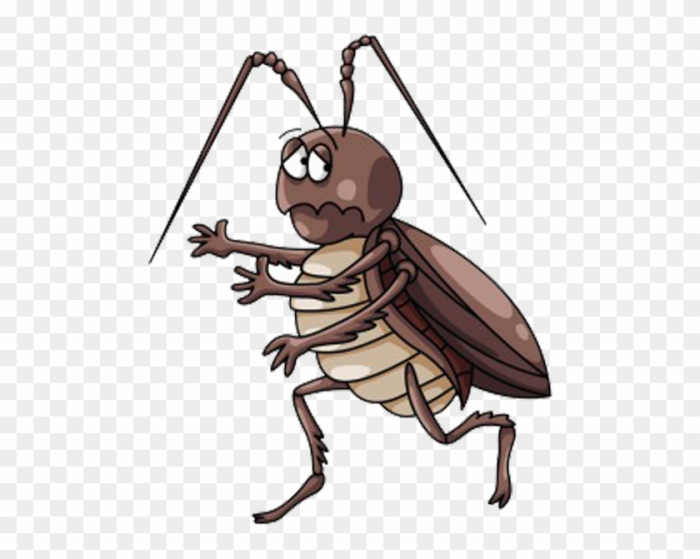What Kills Roaches Instantly
Roaches: Roaches’ name is enough to scare you.
Does every homeowner think, What kills roaches instantly? If you have roaches in your home, getting rid of them is essential. We are terrified of them when we see them. And roaches look filthy and very odd. Humans don’t want to see roaches/ insects in our homes. They spread bacteria, and cause of that, we suffer from diseases. We entirely avoid eating when roaches touch our food. Cockroaches carry many bacteria and diseases because they eat and walk through decaying matter.
Cockroaches can infect food with their waste and saliva, which contains bacteria that can cause food poisoning, diarrhea, and Staphylococcus infections. Because of these reasons, if you want to know what kills roaches instantly and keeps them out permanently, we’ll explain the best and fast ways to get rid of them in this blog.
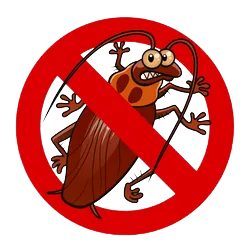
We hate spiders as well but do you ever think do spiders feel pain when they are killed by someone or something? You can check the blog here: Do spiders feel pain
What Kills Roaches Instantly and naturally using home remedies?
We’ll show you some ways to get rid of roaches instantly and naturally. Now let’s discuss the different options to kill cockroaches; some will work immediately, and some are meant to take a slower process so that the appeal or product has time to be shared with the roach nest.
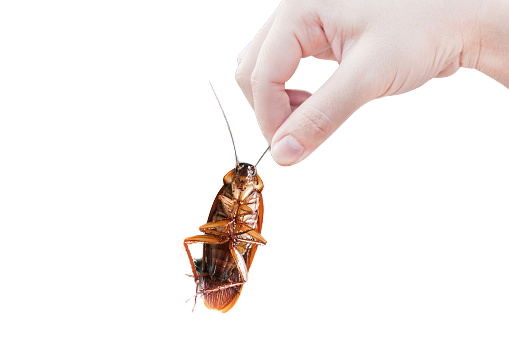
1. Diatomaceous earth:
A couple of steps that help make the diatomaceous earth flourish is to ensure you are following proper sanitation, applying the diatomaceous earth, then reapplying and cleaning up any excess. If you use diatomaceous earth, you must ensure that the area is dry.
Roaches will come in contact with the DE, so apply in the right places where they hide and roam. Such application areas can be under and behind kitchen appliances, cracks and crevices, and inside wall holes.
2. Baking Soda
We usually keep baking soda in our homes. It is one of the fastest, easiest ways to eliminate roaches. To make a DIY roach bait, dice onions and sprinkle them with baking soda.
Place this appetizer in a facile dish where you’ve found the most roach activity. When the roaches consume baking soda, it creates gasses in their stomachs, causing them to explode.

3. Borax
Borax is widely known for being a very reasonable way to kill roaches. And yes, many people are using it because it is also easy to use. The problem is that it can leave a lot of clutter behind. You can apply it to where you find cockroaches the most and leave it overnight. When the roaches come and consume the borax, it will dehydrate them and kill them instantly.
4. Bleach
There are better ways to kill roaches than this, but as it will keep them away for a while, they will come back, and you have to think about that. The smell will push roaches away, which is still a perfect thing to have.
But with the proper planning, you can get some fantastic results, and that’s what you want to pursue the most in a situation like this. You can spray it and then draw a line with it so that the roaches hopefully will not pass.
5. Citrus
Citrus is a tasty delicacy for humans, but it’s a repellent to cockroaches. The smell of lemons, specifically, prevents roaches. Add a few drops of lemon oil to the water when mopping your floors. The scent won’t be detectable to people but will transmit roach packing.
6. Boric Acid
Boric acid Some people find this the most suitable option to kill roaches. Boric acid can also work; the only downside is that bugs sometimes go away after they smell boric acid. You have to combine it with something, as you can mix it with bread, cake, or something. A lot of folks choose to mix it with some raw egg yolk. It is alluring for cockroaches and easy to apply it.
6. Essential Oils
Essential oils are a terrific natural roach repellant, readily available anywhere. For best results, buy peppermint or lemongrass essential oil and mix it with a bit of water. Spray the mixture anywhere you’ve caught roaches.
Most asked FAQ:
-
Why Are Cockroaches in My House?

When we see roaches, this question might come to our mind, why are they in my house? As human has their basic needs, they also have their basic needs. To fulfill that need, they enter your home. What are their basic needs:
Food: Roaches are omnivores and will eat anything visually that comes their way. This included discarded food in the garbage, food crumbs, pet food, and even a bar of soap. Because of this reason, they’re often found in the kitchens and cabinets where food is available.
Shelter: Roaches enter homes for protection and warmth as we do. And it depends on the species of roach. They may live anywhere in the house, like behind the photo frame, in damp places beneath the sink or the toilet, or on the backs of your electronics.
Water/Moisture: Roaches also need water and are more attracted to moist areas like drains, tubs, and sinks.
-
How Do You eliminate roaches Overnight?

There are so many different products that claim to get rid of roaches. There’s no instant or overnight solution for a roach pest, but one fix is more effective than all the others: You can call a pest control specialist. Because cockroaches are so difficult to kill and remove, they are tough to control, so it’s best to lean on the pros to eliminate them.
This professional pest controller has access to the knowledge and tools needed to get your cockroach situation under control as efficiently as possible.
-
Why are they so hard to remove from a home?

Next, you’re probably wondering why cockroaches are so hard to eliminate from home. Well, there are a couple of reasons you may know.
As their exoskeletons, they are made of overlapping plates and flexible membranes. It provides a couple of advantages.1) The membrane allows roaches to adapt their bodies to fit through small cracks, crevices, and openings.
2) The rigid plates of the exoskeleton offer a layer of protection.Cockroaches are also excellent at staying hidden; their favorite place is a dark, forgotten place, as they like to be quiet. Have you ever seen one, turned to get the spray, a paper towel, or a shoe to kill it, and noticed it’s vanished? They move quickly and can use their flexible bodies to conceal themselves and escape harm’s way at a moment’s notice.
If your kids like to listen to stories at the time of sleeping, so we have numbers of stories you can check out here: The Adventures Of the Little Field Mouse
We have shown you various natural ways to kill roaches instantly, which you can use as per your convenience, and also there are several products available in the market. You can give it a shot using another product if it does not work. I hope you found the what kills roaches instantly blog helpful, and if you have any queries, feel free to let us know in the comment section. We are always happy to help you. Stay tuned for the upcoming roaches blog. Till then, stay strong and healthy.
